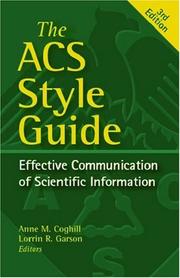In-Class Padlet Activity - CH 1100
Databases
-
SciTech Premium Collection This link opens in a new windowProvides full text titles in the natural sciences, science, and technology. Coverage of scholarly journals, trade and industry publications, technical reports, conference proceedings, government publications, etc.
-
ScienceDirect This link opens in a new windowIncludes full-text journals, and some open-access items, focusing mainly on the physical, life sciences, and social sciences. This subscription also includes titles to support counseling and psychology.
Database Search Tips
- Consider what type of information you need and where you might find it.
- Break your topic into key concepts and identify terms for each concept. Start with fewer words. Less yields more.
- Don't be too narrow in your search, especially initially.
- While it is possible to find sources on international or local topics, the strength of many of our academic databases is coverage of US national topics.
- Use Boolean connectors like AND, OR, and NOT to connect keywords. Many databases search the words as a phrase otherwise.
- In general, avoid using prepositions like "in," "of," and "on."
- Truncation characters such as an * (asterisk) can expand your search by retrieving various forms of a word, e.g., comput* retrieves computer, computers, computing, computation, etc.
- Look at the subject terms or descriptors that are used for articles that appear relevant. Try other searches using those terms.
- In the sciences and social sciences, when starting a journal article search on a topic, consider adding systematic review or meta-analysis, or literature review in your search.
- Consult a librarian or your faculty member for additional related terms.
- Think about which individuals or groups of people or organizations are associated with your topic. These might be additional terms to search.
Evaluate Article Relevance & Quality
- Look at subject terms applied to relevant articles. Did you find additional articles by searching these subject headings?
- Which terms or search strategies yielded the best results?
- Look at the abstract. Are there additional keyword terms you might search?
- How long is the article?
- In which journal or periodical was this article published? What is the journal's or magazine's reputation? How do you know?
- When was the article published? What time period does the research or article cover?
- Who is the author of the article? What are the author's credentials? What qualifies the author as an expert?
- What sources are cited in this article?
- How will this source advance the research project?
- See Evaluate Information for more criteria.
Zotero
-
ZoteroBibDo you need a quick citation? ZoteroBib, or Zbib, helps you build a bibliography instantly from any computer or device, without creating an account or installing any software. In addition to APA, Chicago, and MLA formats, it can generate practically any other citation style.
Examples of References generated in ACS (American Chemical Society) format from Zotero:
(1) Lamprecht, C.; Graus, M.; Striednig, M.; Stichaner, M.; Karl, T. Decoupling of Urban CO2 and Air Pollutant Emission Reductions during the European SARS-CoV-2 Lockdown. Atmospheric Chemistry and Physics 2021, 21 (4), 3091–3102. https://doi.org/10.5194/acp-21-3091-2021.
(2) Shi, T.; Sridhar, D.; Zeng, L.; Chen, A. Recent Advances in Catalyst Design for the Electrochemical and Photoelectrochemical Conversion of Methane to Value-Added Products. Electrochemistry Communications 2022, 135, 107220. https://doi.org/10.1016/j.elecom.2022.107220.
More examples of ACS formatted References can be found in ACS publications, such as ACS Medicinal Chemistry Letters. Also see The ACS Style Guide.
-
 The ACS Style Guide: Effective Communication of Scientific Information
Call Number: QD8.5.A25 2006 (3rd Floor)Publication Date: 2006Used in chemistry.
The ACS Style Guide: Effective Communication of Scientific Information
Call Number: QD8.5.A25 2006 (3rd Floor)Publication Date: 2006Used in chemistry.

